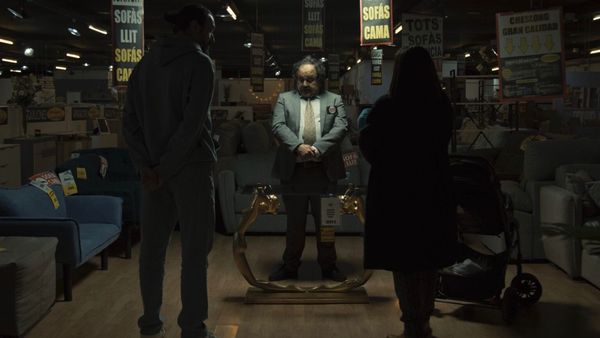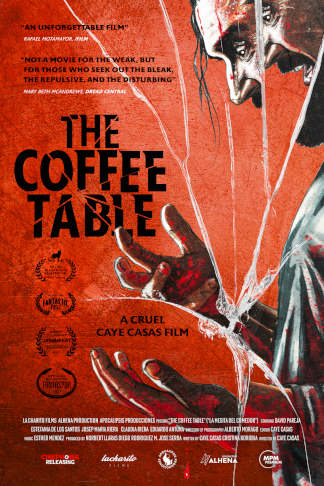Eye For Film >> Movies >> The Coffee Table (2022) Film Review
The Coffee Table
Reviewed by: Jennie Kermode

One of the most talked-about films of the past year – without actually being talked about in detail by anyone – Caye Casas’ The Coffee Table is a work of art. It’s cleverly written, beautifully performed and quite unforgettable, and yet I cannot in good conscience recommend that anybody watch it. In fact, the director has told people the same thing.
If you do watch it, in spite of this warning, it will put every other so-called horror film that you have seen into perspective. With very rare exceptions, those are really about fear, about disgust, about creepiness or violence or compulsion. They don’t look horror in the face the way this does. Though the central incident itself happens offscreen, like fragments of what follows, we don’t need to see it to feel the impact, and if you have experienced the slightest hint of horror like it in your own life, you’ll find yourself shaking, your intestines in a knot, and if you don’t sob throughout then the pressure will leave you feeling as if you’ve been punched in the throat.

Some critics have acknowledged that, in spite of all this, the film has some funny moments. It would be fairer to say that it is, in fact, a comedy throughout, and a very well observed one. On a certain level, it’s not even black comedy, because most of it is delivered in innocence. A meeting in a supermarket with a woman who complains about her daughter even when the poor kid is present. A dinner party. A teenage neighbour with an awkward crush. These familiar things ought to be comforting, but layer upon layer, they make it worse.
If you think about the most difficult moments in your own life – or the best – and wind them back and try to work out where the threads that led to them began, where do you find yourself? The chances are that there are tiny things without which none of it would have happened, without which you would be a completely different person. Here, it’s Jesús and María arguing over a coffee table. She has chosen all the rest of the décor in their apartment. He just wants this one thing. It’s tacky, she suggests, and overpriced. The salesman is terrible at his job, but he tries. “If you buy the table and treat it well, it will make you happy,” he says. “It needs to be loved.” In the course of what follows, Jesús and María will remember how much they love each other, but it won’t – can’t – be enough.
The Coffee Table will remind you of the darkness underlying everything, will force you to look into the void. It will do so with elegance and wit and no small measure of sympathy. What you don’t see, still, somehow, you can’t unsee.
You have been warned.
Reviewed on: 18 Apr 2024















